Weekly News Recap #Phispers
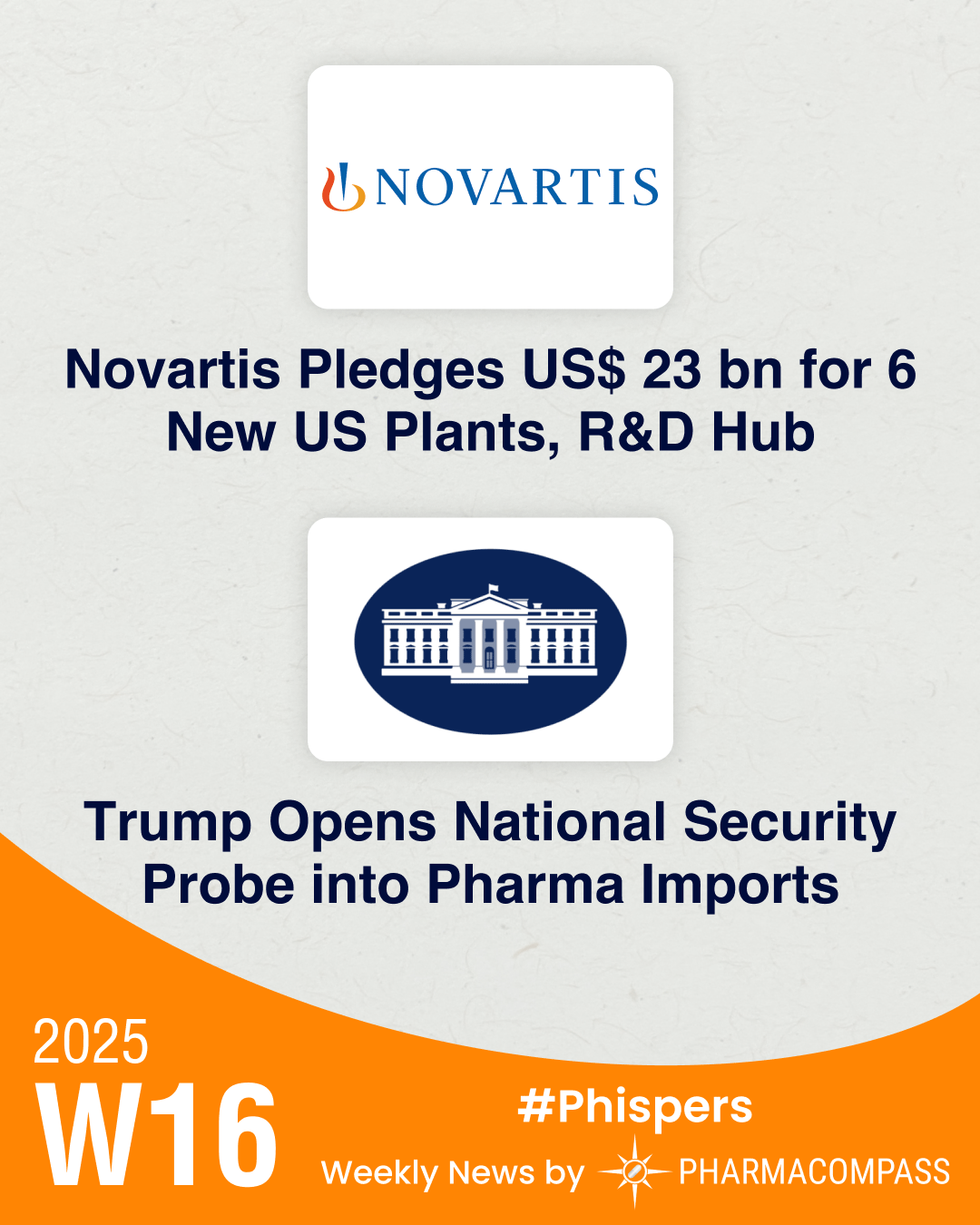
Novartis to invest US$ 23 bn in US to avoid import tariffs; Pfizer halts development of GLP-1 weight-loss pill
After Eli Lilly and
Johnson & Johnson, Novartis has become the latest big pharma to announce
mega investments in the US. The ...
Impressions : 457
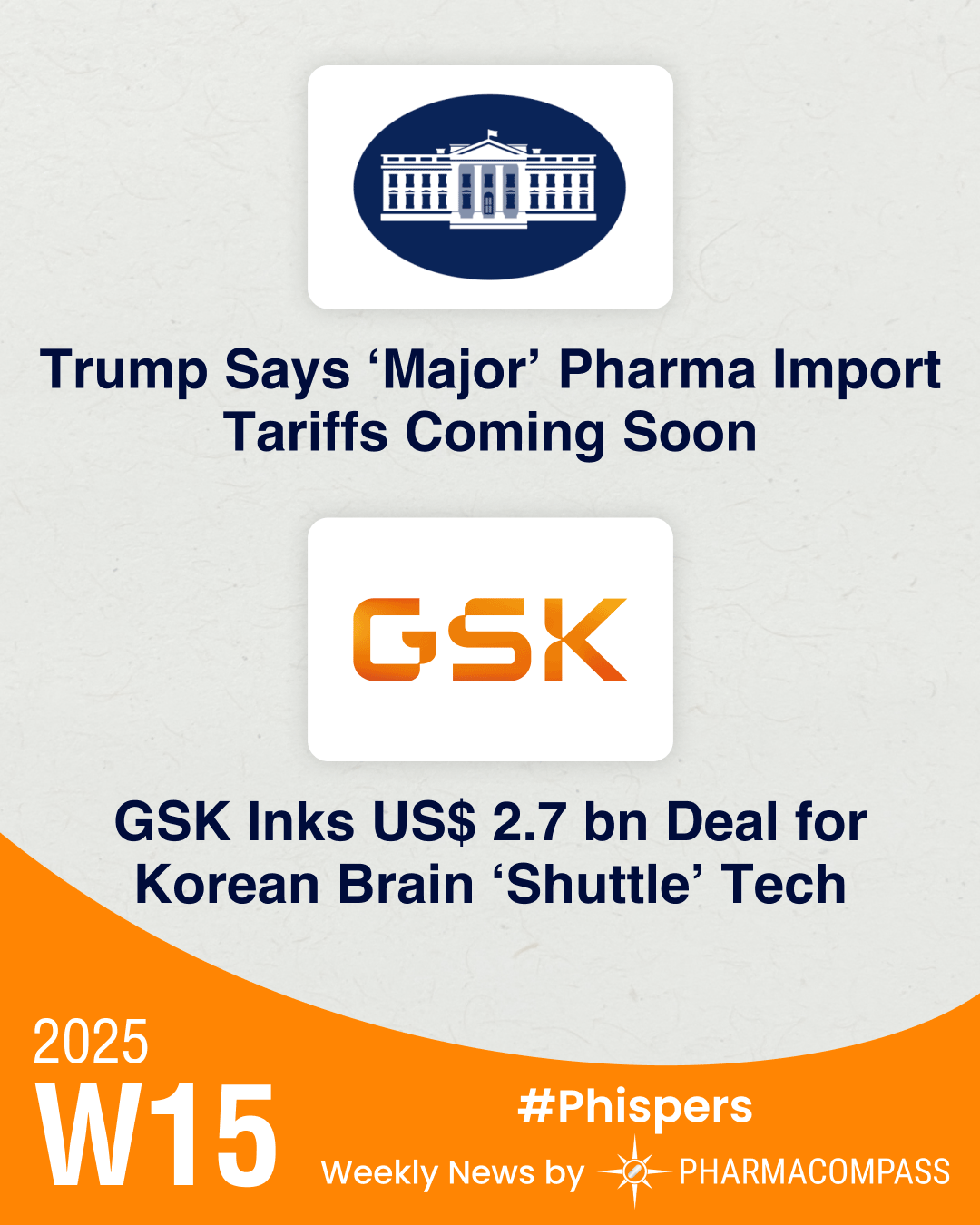
Pharma tariffs coming soon, warns Trump; GSK, Lilly ink billion-dollar deals for blood-brain barrier technology
In this week’s news, US President Donald Trump has said “major” pharmaceutical import tariffs are coming soon...
Impressions : 942
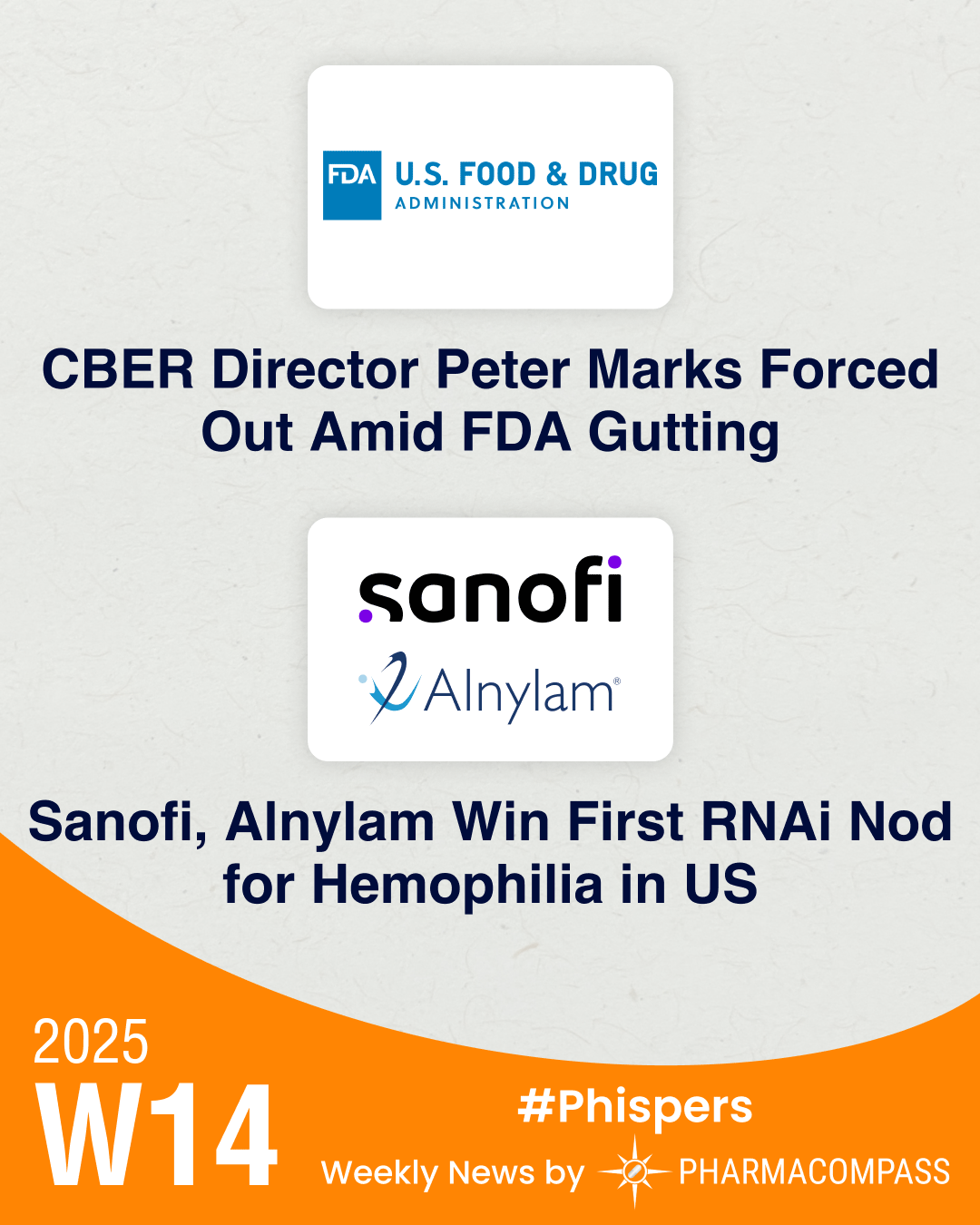
CBER director forced out in FDA gutting; Sanofi, Alnylam’s RNAi therapy Qfitlia wins US approval for hemophilia A, B
The pharma industry saw its most tumultuous week in the recent past with the US Food and Drug Administration (FDA) facing an un...
Impressions : 868
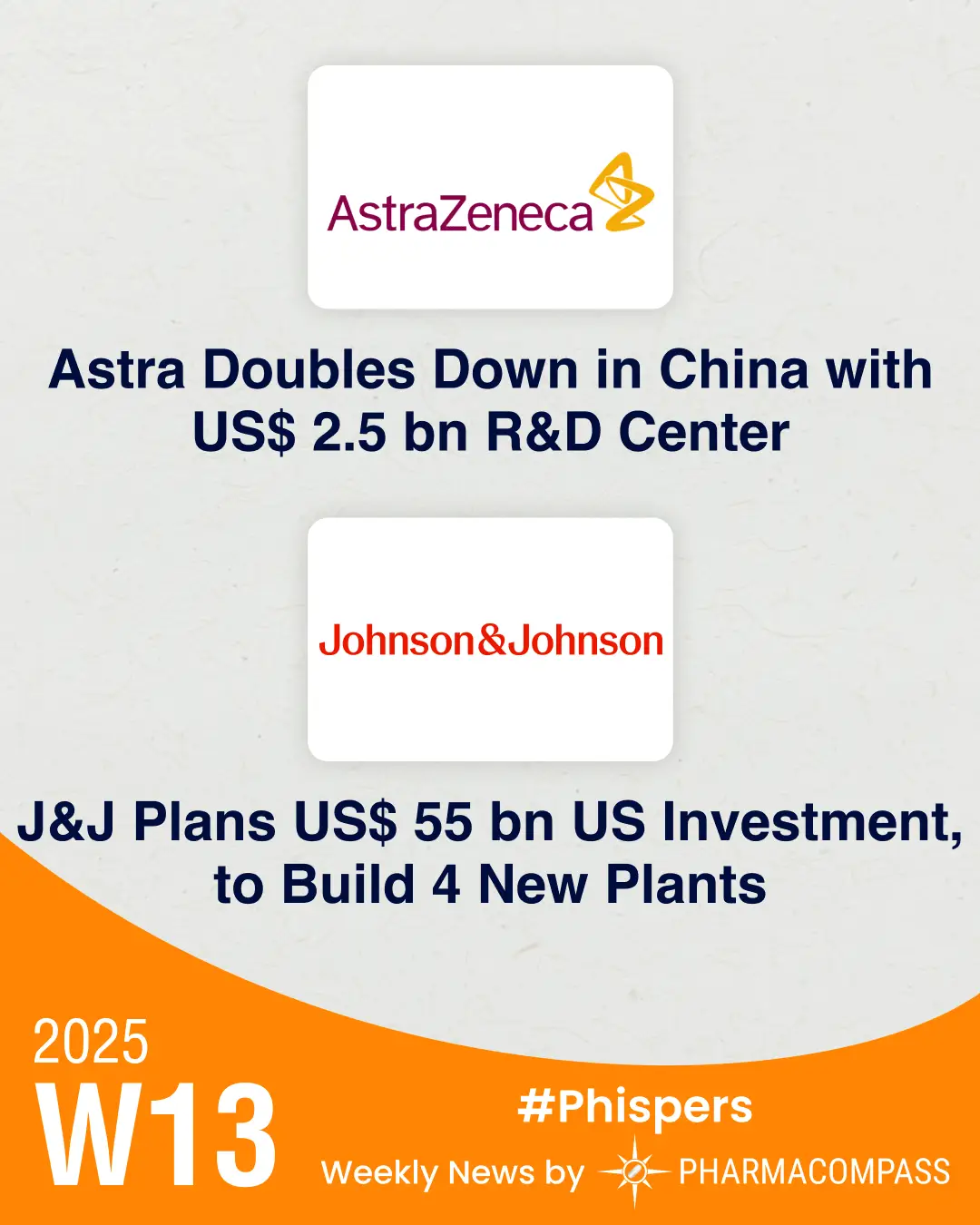
J&J plans US$ 55 bn investment in US to avoid Trump’s tariffs; Astra to invest US$ 2.5 bn in Chinese R&D centre
This week’s Phispers brings you lots of news from China. AstraZeneca is investing US$ 2.5 billion in a new Beijing resear...
Impressions : 783
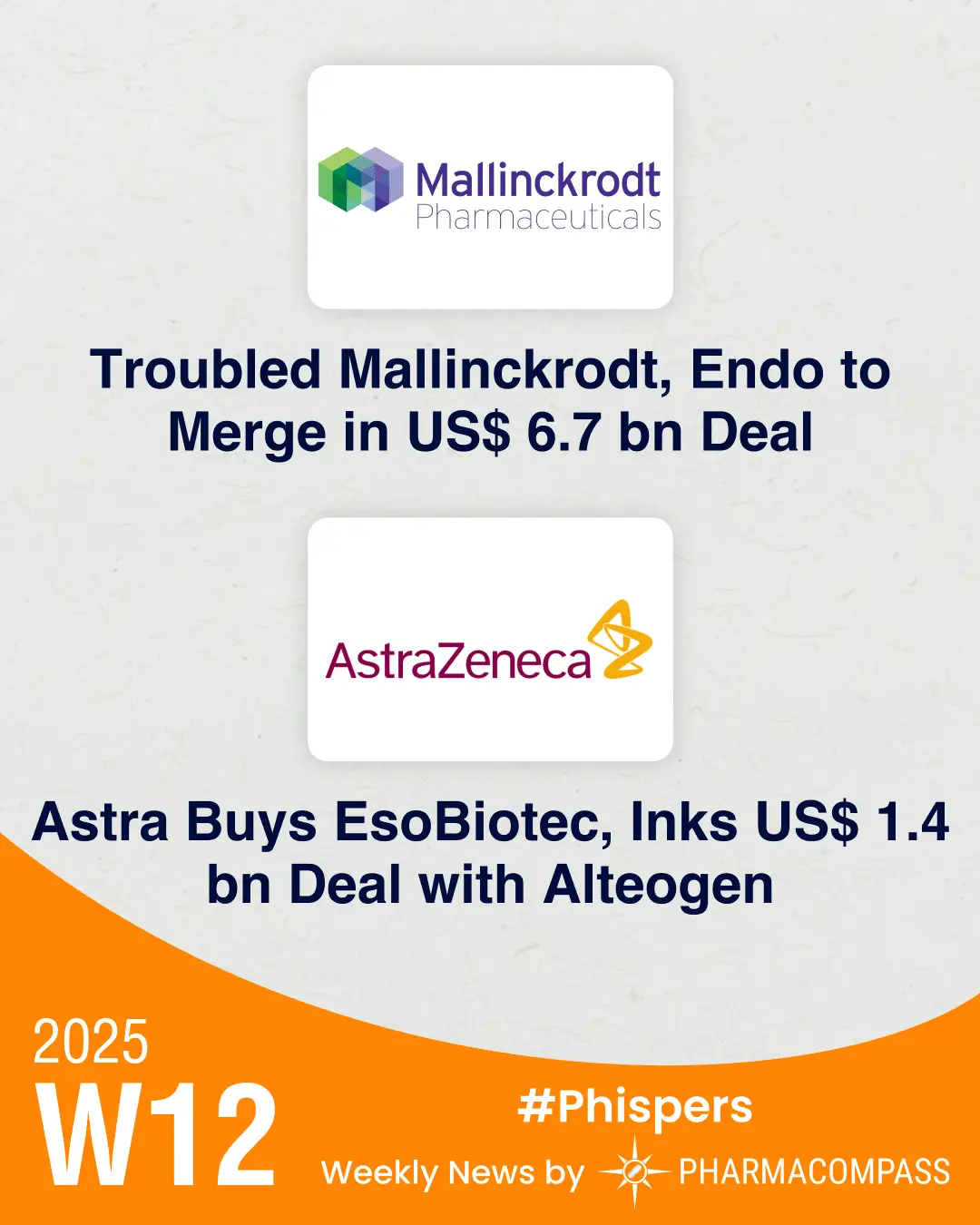
Mallinckrodt, Endo merge in US$ 6.7 bn deal; Astra buys cell therapy developer EsoBiotec; Pfizer sells entire stake in Haleon
In Phispers this week, two drugmakers emerging from bankruptcy — Mallinckrodt and Endo — are merging in order to le...
Impressions : 1092
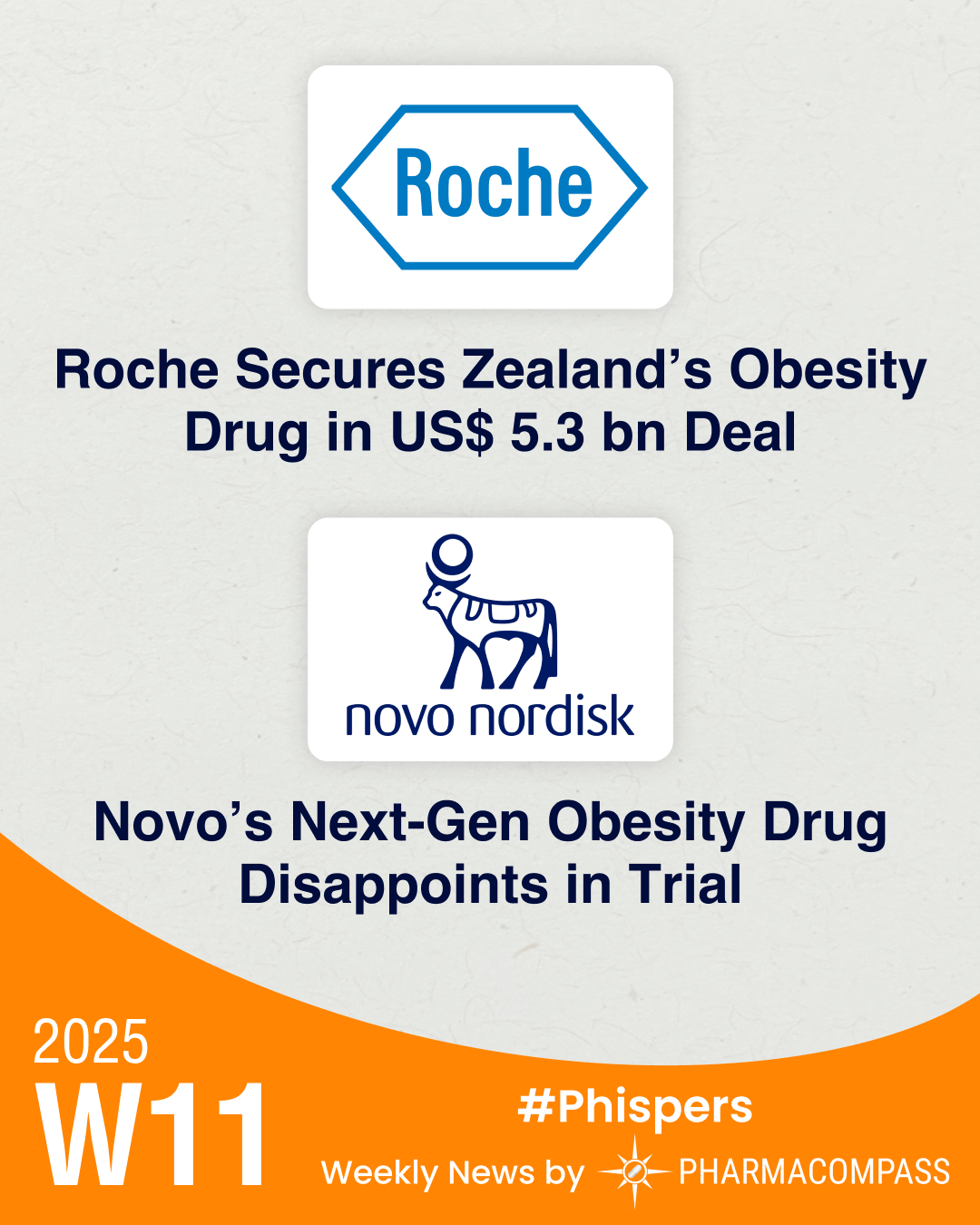
Roche buys rights to Zealand’s obesity med in US$ 5.3 bn deal; Merck wins Gardasil lawsuit, bolsters vaccine manufacturing
In news this week, Roche has acquired rights to develop and commercialize Zealand Pharma’s experimental obesity drug petr...
Impressions : 1160
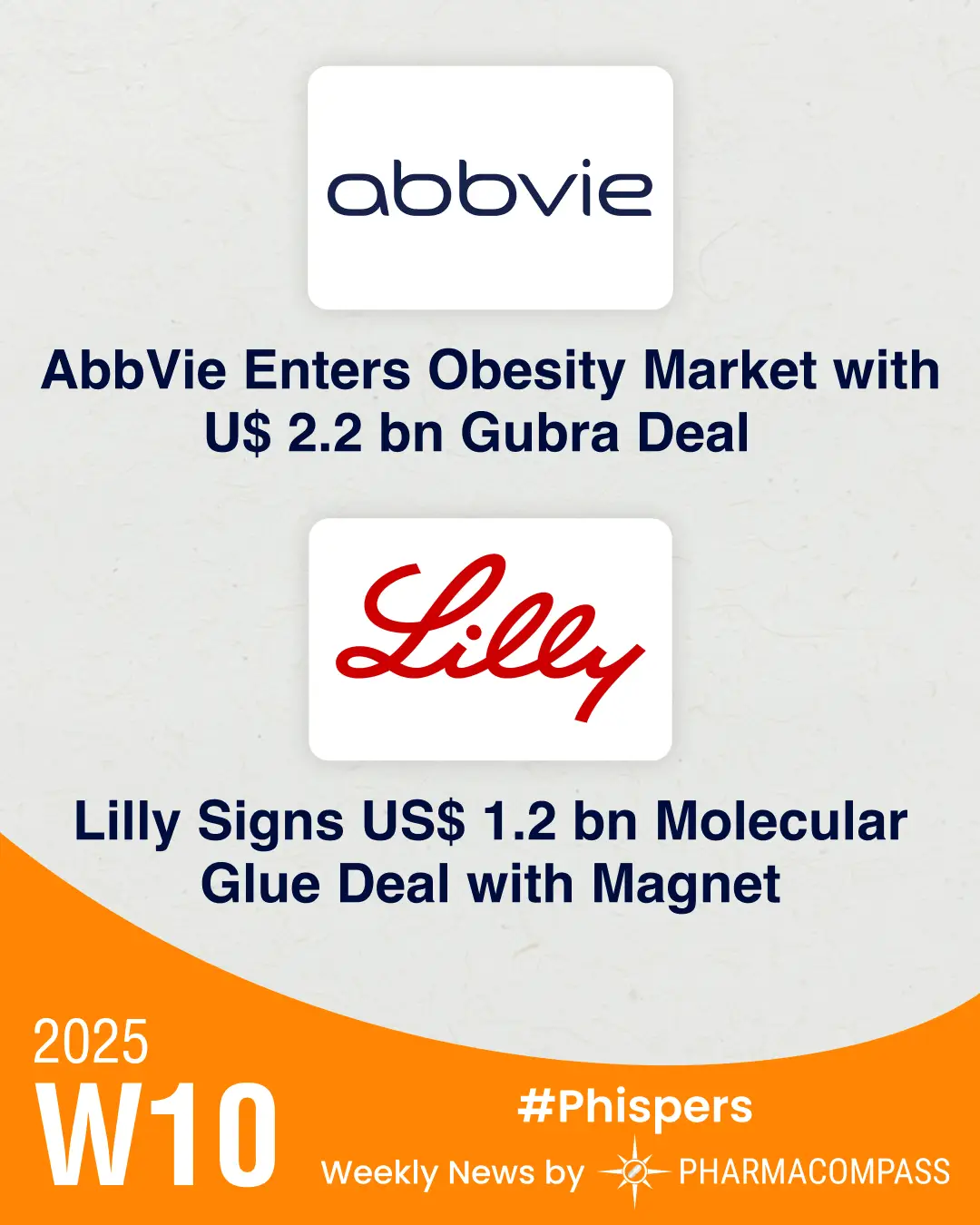
AbbVie enters obesity race with US$ 2.23 bn deal with Denmark’s Gubra; Roche’s TNKase approved for treating strokes
AbbVie has forayed into the obesity treatment market with a US$ 2.23 billion licensing deal with Denmark’s Gubra for its ...
Impressions : 862
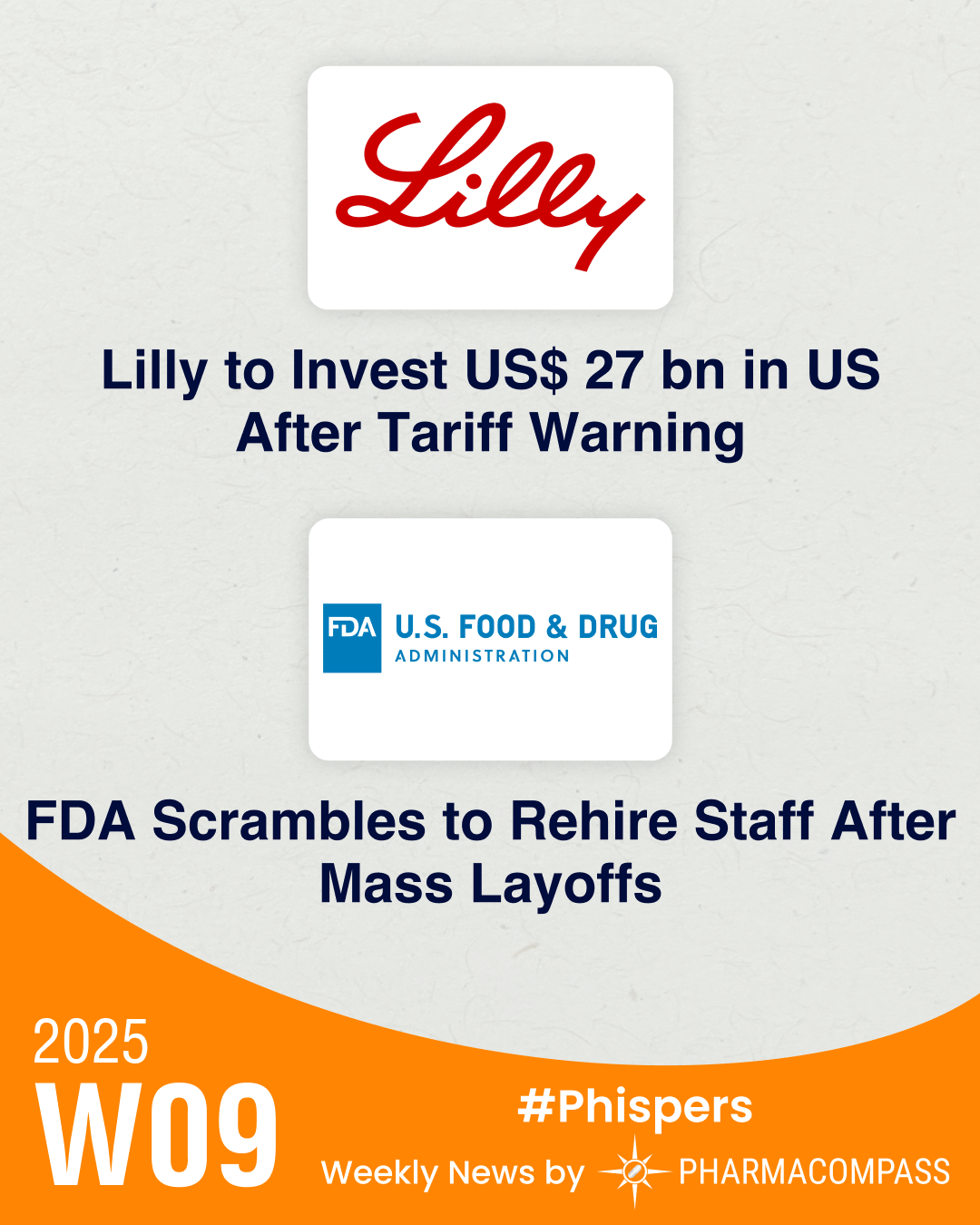
Lilly to invest US$ 27 bn in US as Trump threatens big pharma with tariffs; FDA scrambles to rehire after mass layoffs
In the US, President Donald Trump has been putting
pressure on Big Pharma to reshore or face tariffs.
Eli Lilly has been the ...
Impressions : 982
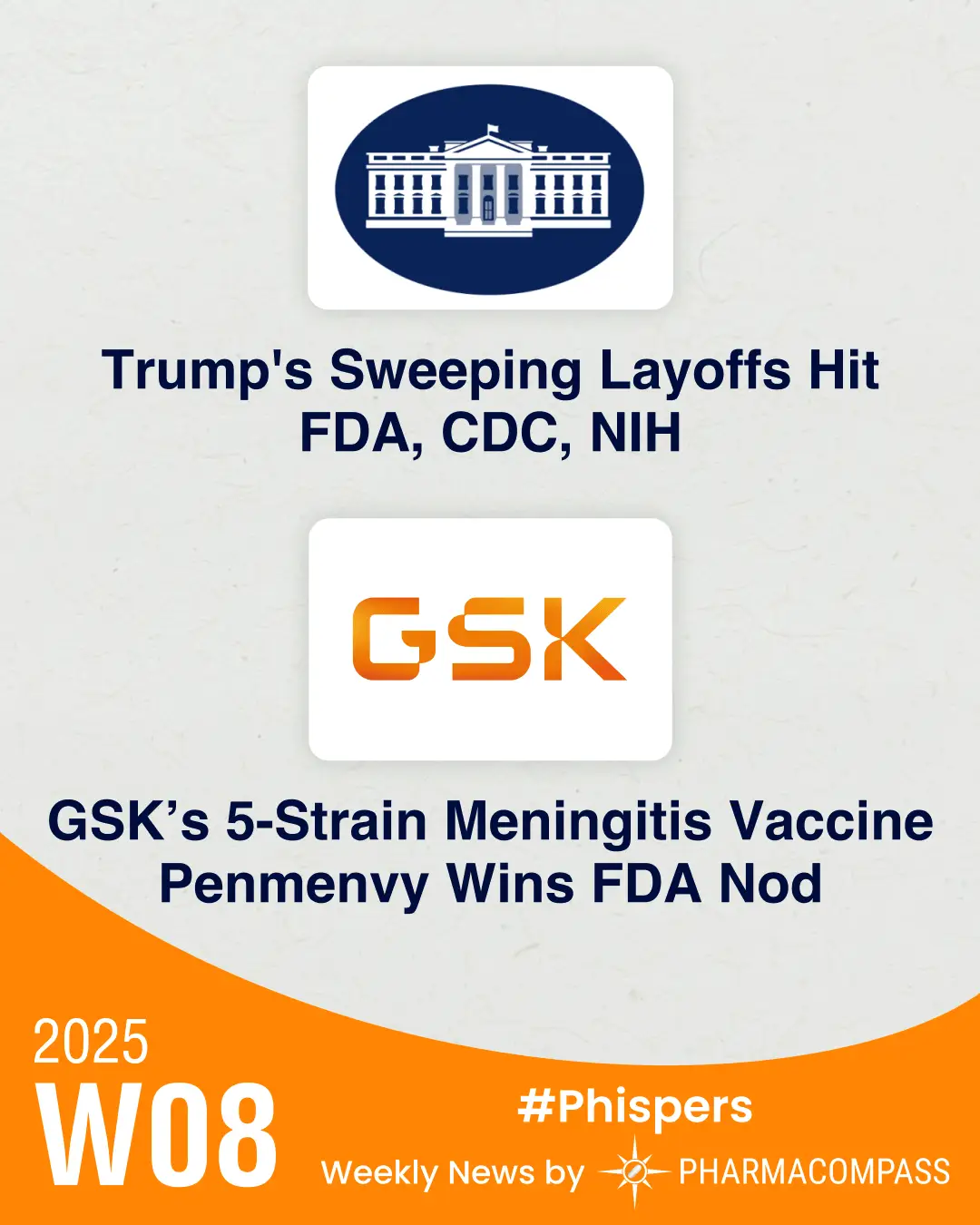
US health agencies brace for more layoffs under RFK Jr; Novo alleges fraud in US$ 1.3 bn deal with KBP BioSciences
In this week’s Phispers, we bring you news from the public health agencies in the US that have already witnessed consider...
Impressions : 888
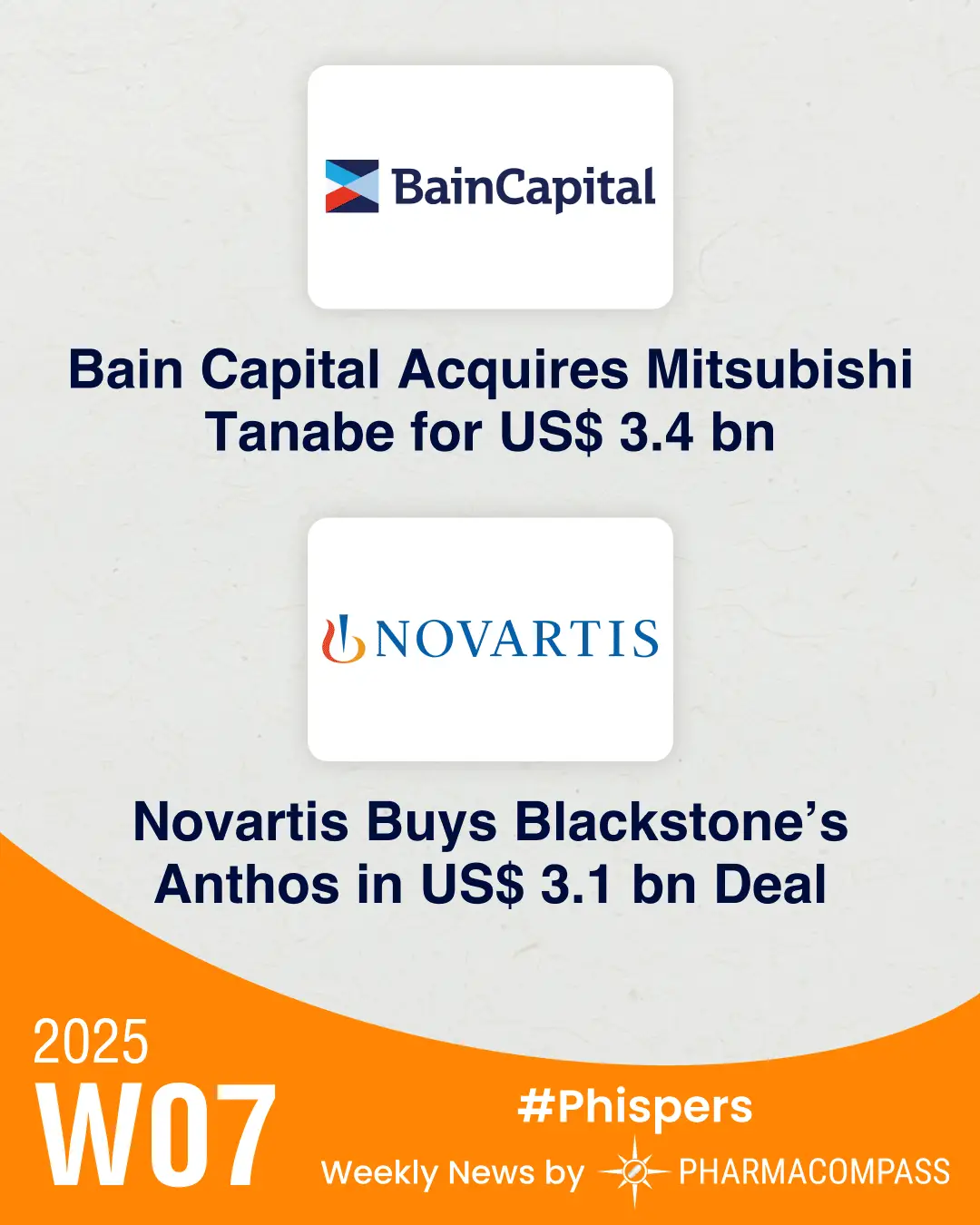
Bain buys Mitsubishi Tanabe for US$ 3.4 bn, Novartis acquires Anthos for US$ 3.1 bn, FDA okays AbbVie-Pfizer’s new antibiotic
In this week’s news, Bain Capital acquired Japanese pharma Mitsubishi Tanabe for US$ 3.4 billion. And Novartis acquired B...
Impressions : 1618
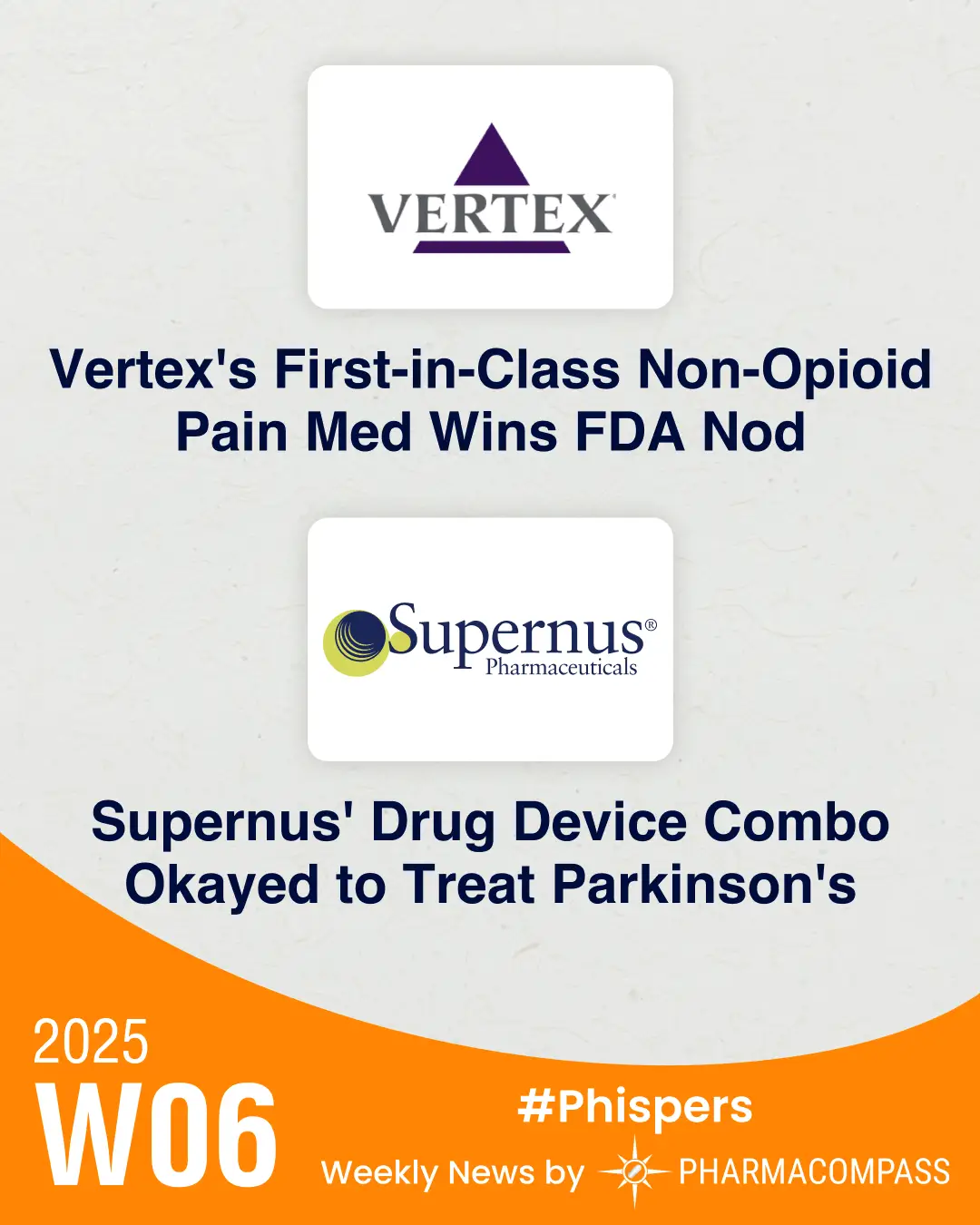
FDA okays Vertex’s non-opioid painkiller, Supernus’ wearable device for Parkinson’s; Sanofi, GSK plan share buybacks
While the healthcare sector in the US was embroiled in political uncertainties over tariffs and key appointments, the country&r...
Impressions : 630
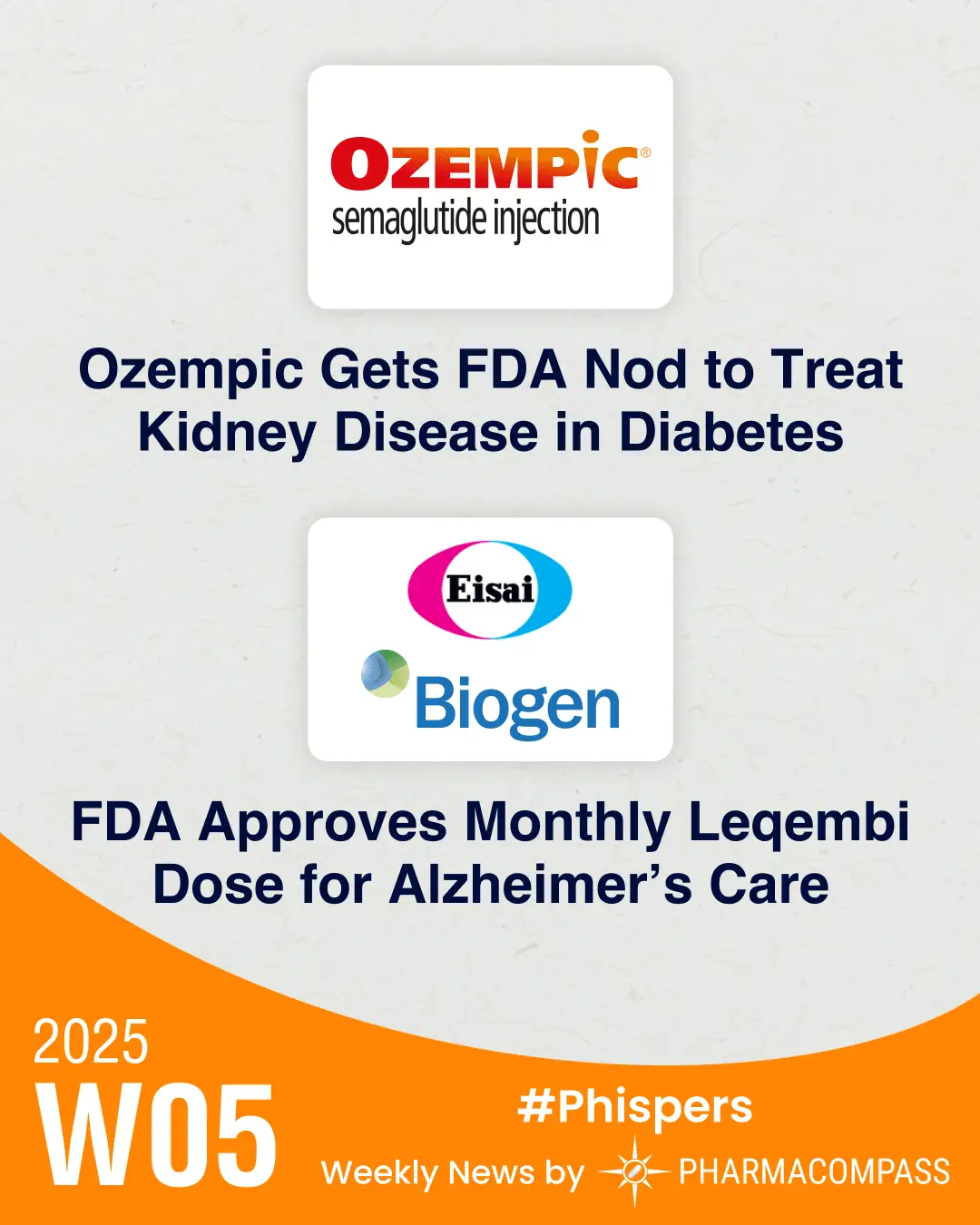
FDA approves Ozempic to treat CKD in diabetes patients; AbbVie, Neomorph ink US$ 1.64 bn deal for molecular glue degraders
Novo Nordisk’s Ozempic became the first glucagon-like peptide 1 (GLP-1) drug to receive the US Food and Drug Administrati...
Impressions : 839
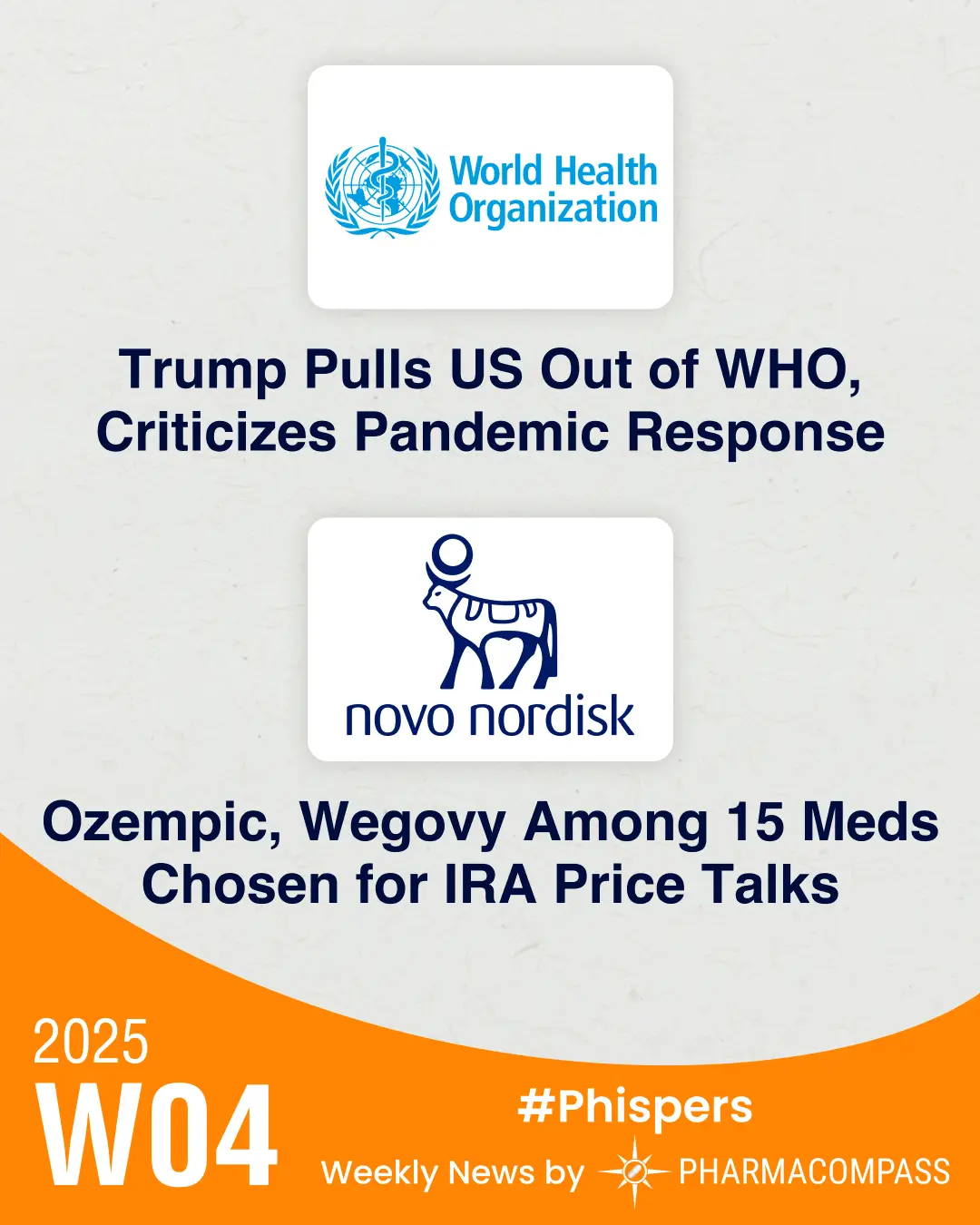
Trump withdraws US from WHO; Novo’s Ozempic, Wegovy among 15 new drugs chosen for price negotiations under IRA
On the day Donald Trump was sworn in as the 47th President of the United States, there was a deluge of some 200 measures, which...
Impressions : 1502
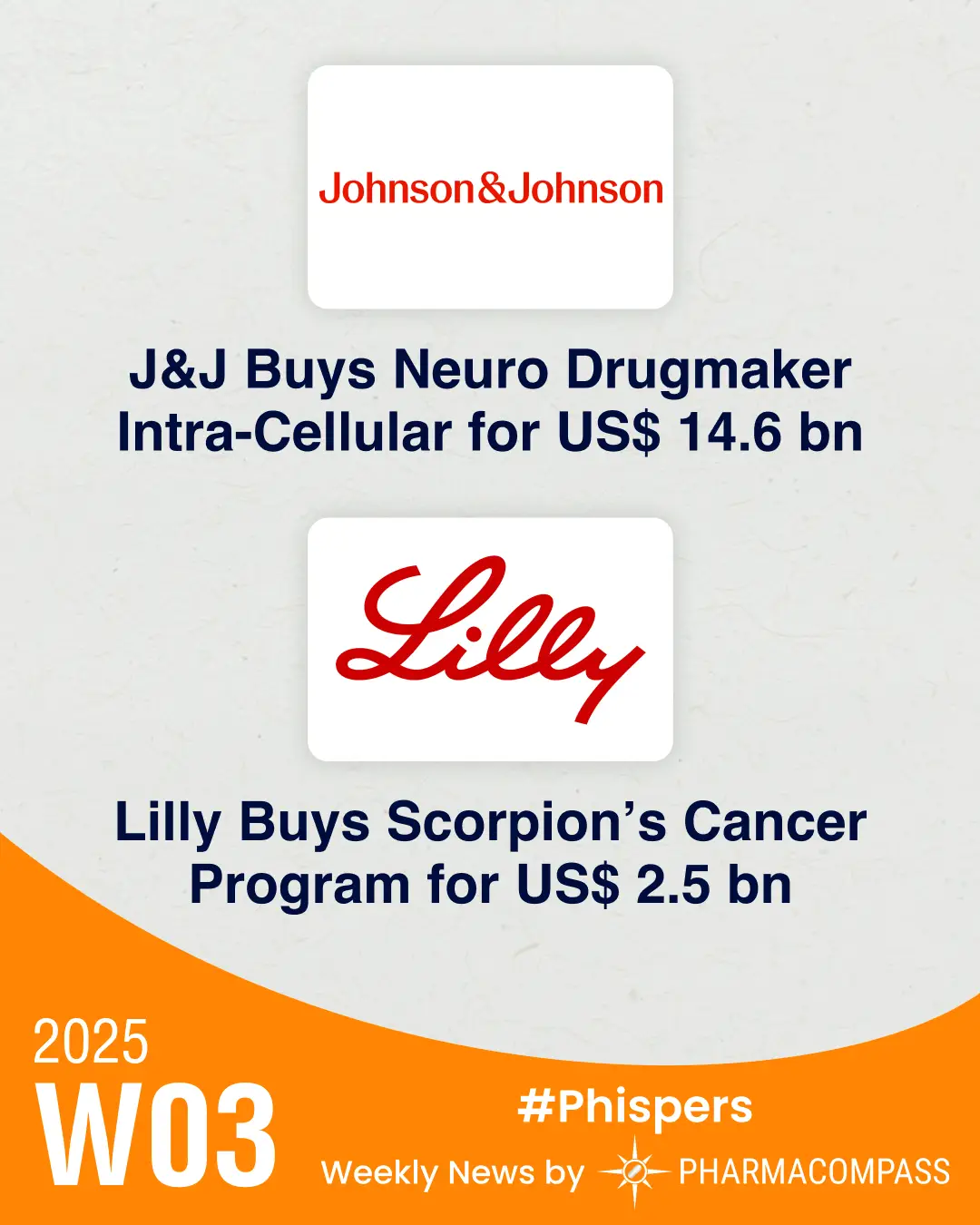
J&J buys Intra-Cellular for US$ 14.6 bn; FTC exposes PBMs’ US$ 7.3 bn drug price markup scheme
The week saw the J.P. Morgan Healthcare Conference kick
off with a flurry of deals. In all, deals worth over US$ 19.3 billion ...
Impressions : 831
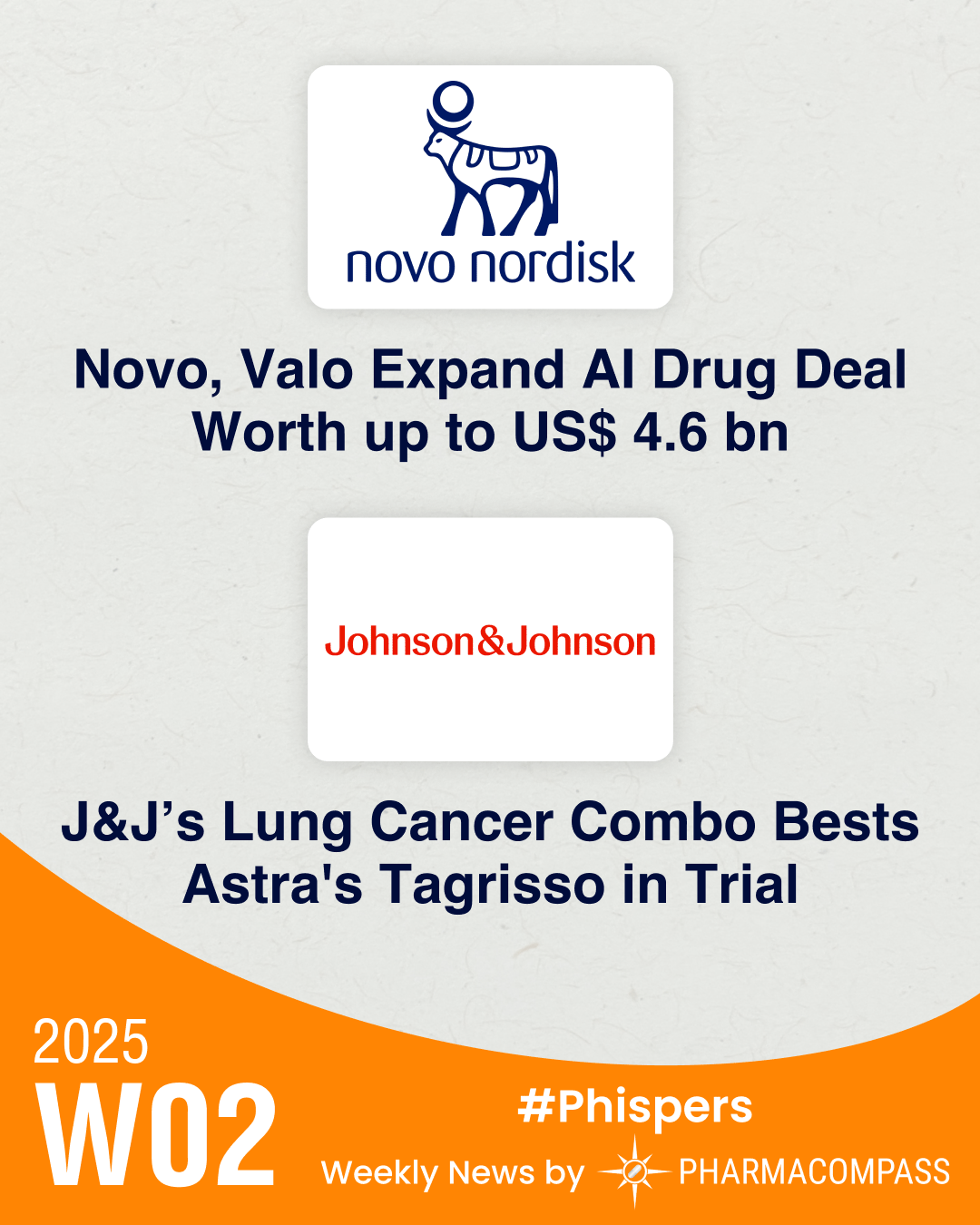
Novo bets up to US$ 4.6 bn on AI drug development, expands deal with Valo Health; WuXi sells Irish vaccine plant to Merck
As the embattled WuXi Biologics faces increasing pressure from the impending US Biosecure Act, it has decided to sell its vacci...
Impressions : 987
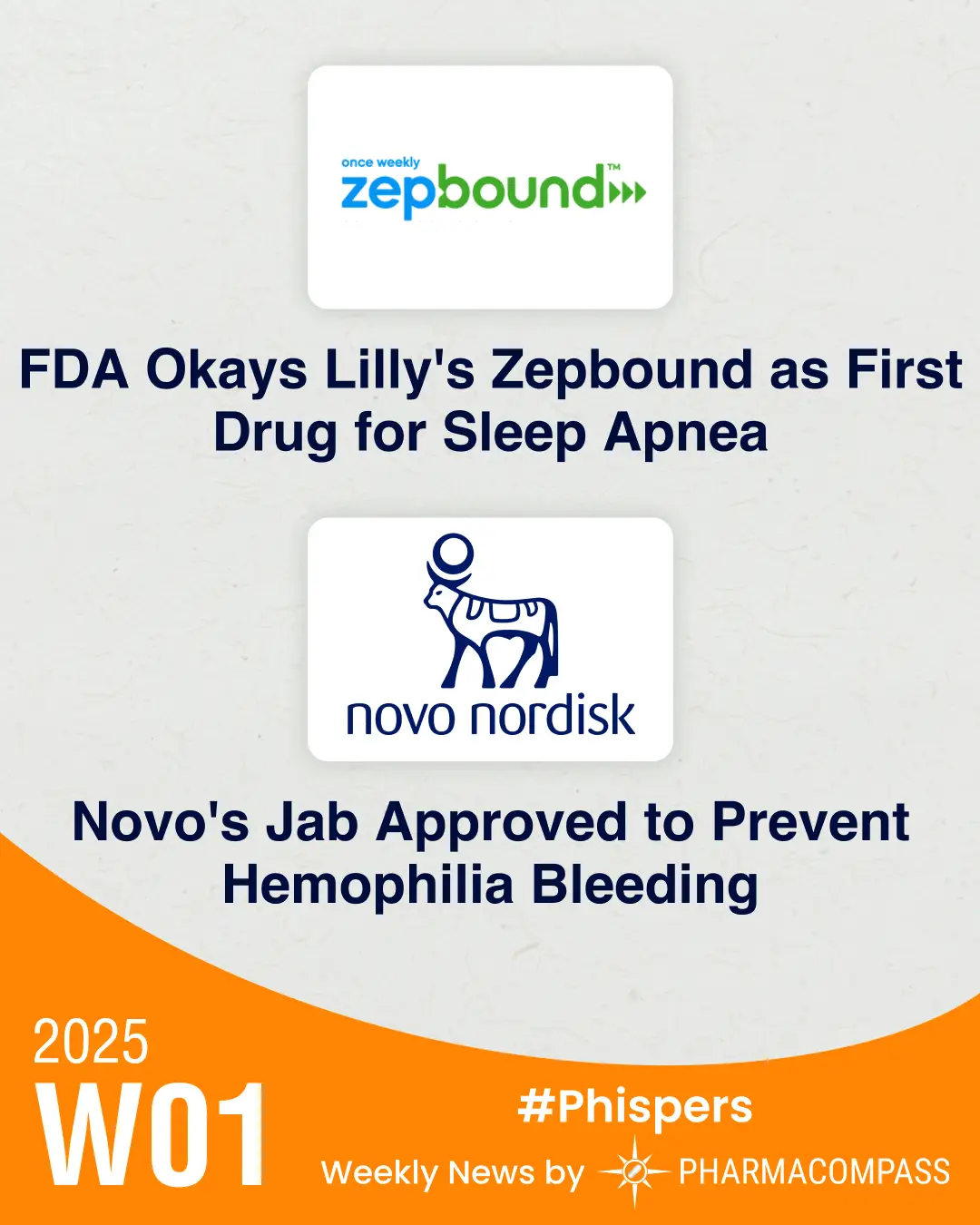
Lilly’s Zepbound becomes first FDA-approved therapy for sleep apnea; Novo wins nod for daily hemophilia shot
This week’s Phispers is a double bill with news from the last two weeks. Through much of December, the US Food and Drug A...
Impressions : 1107
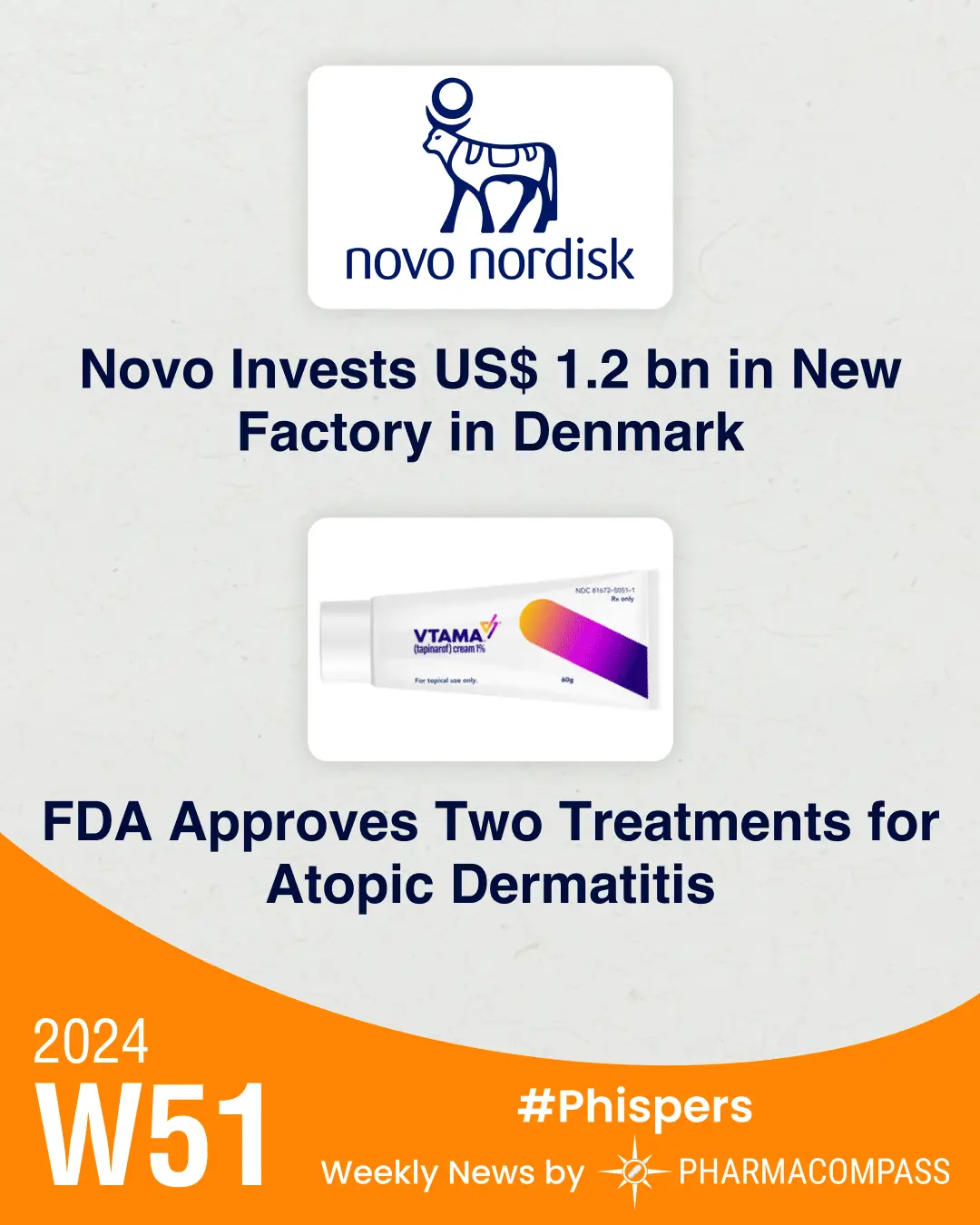
Novo invests US$ 1.2 bn in new rare disease plant in Denmark; FDA approves two drugs for atopic dermatitis
As the year draws to a close, the US Food and Drug Administration (FDA) has been approving drugs at a feverish pace. It approve...
Impressions : 835
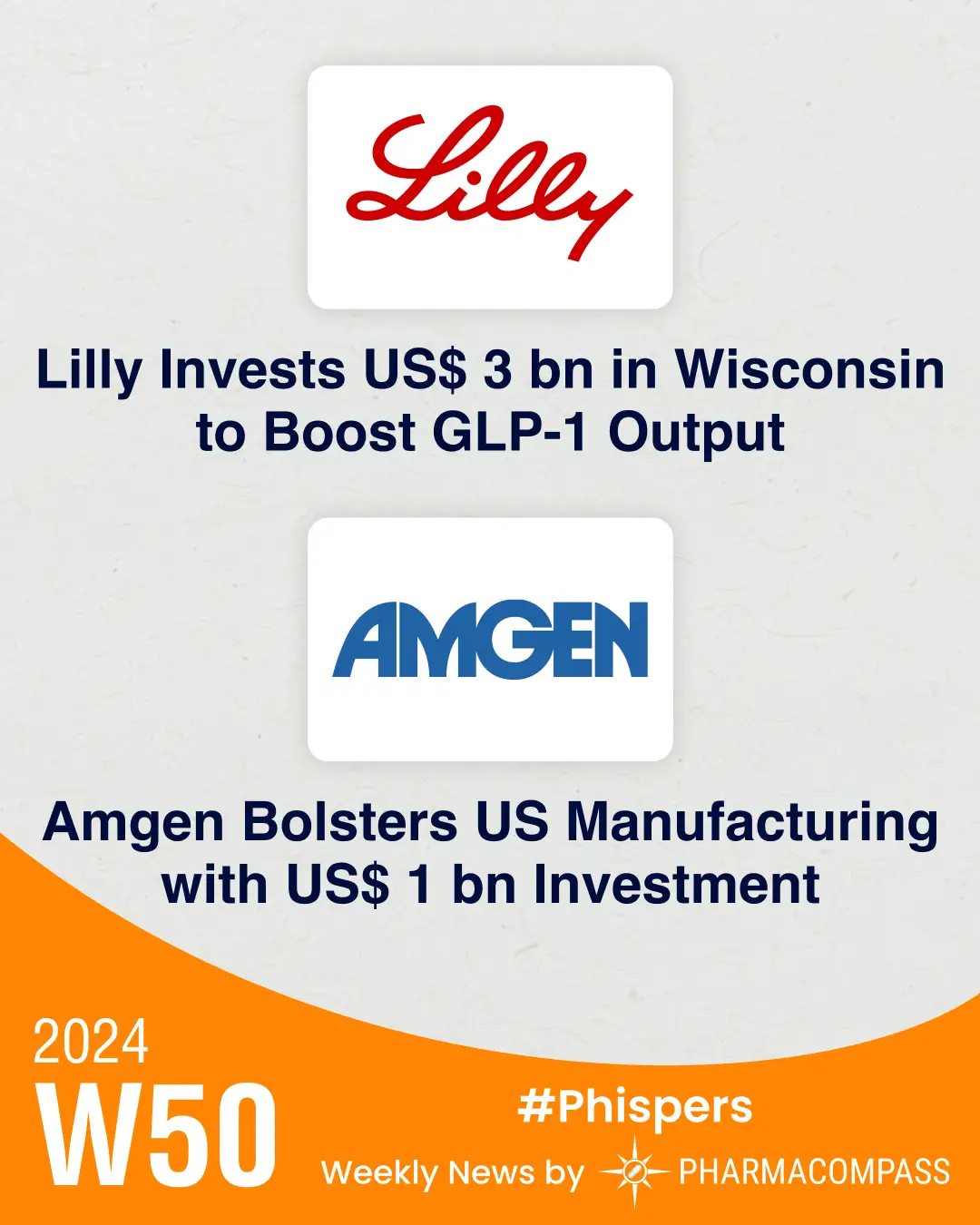
Lilly, Amgen inject billions into manufacturing; GSK’s Blenrep bests world’s top-selling myeloma drug
In Phispers this week, Eli Lilly announced an investment
of US$ 3 billion towards building a new plant in Wisconsin (US) to me...
Impressions : 10882
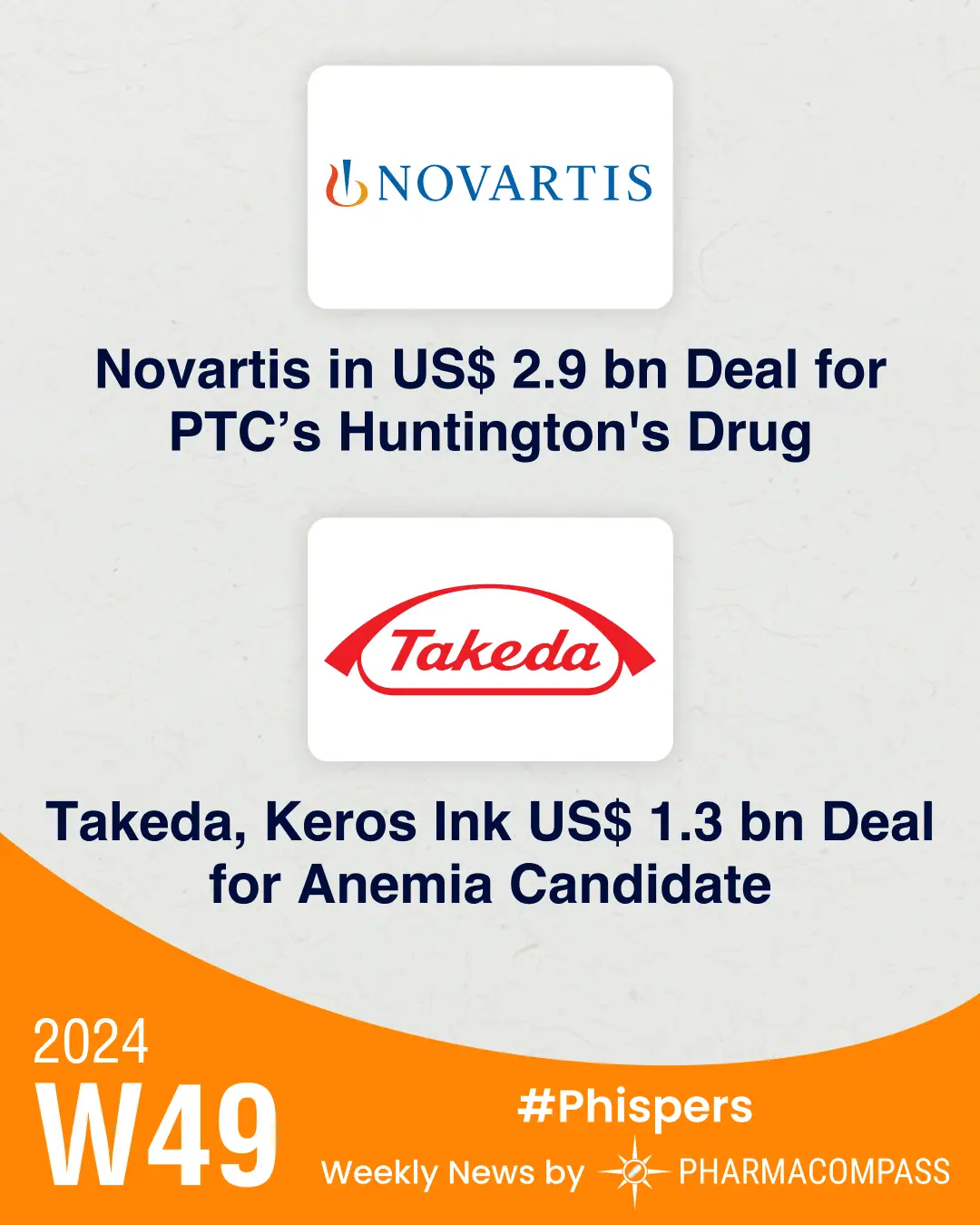
Novartis snaps up PTC’s Huntington’s disease program in US$ 2.9 bn deal; Sanofi to set up insulin facility in China
In Phispers this week, we bring you news of how political
changes in the US could impact the pharma industry. Big Pharma has r...
Impressions : 916
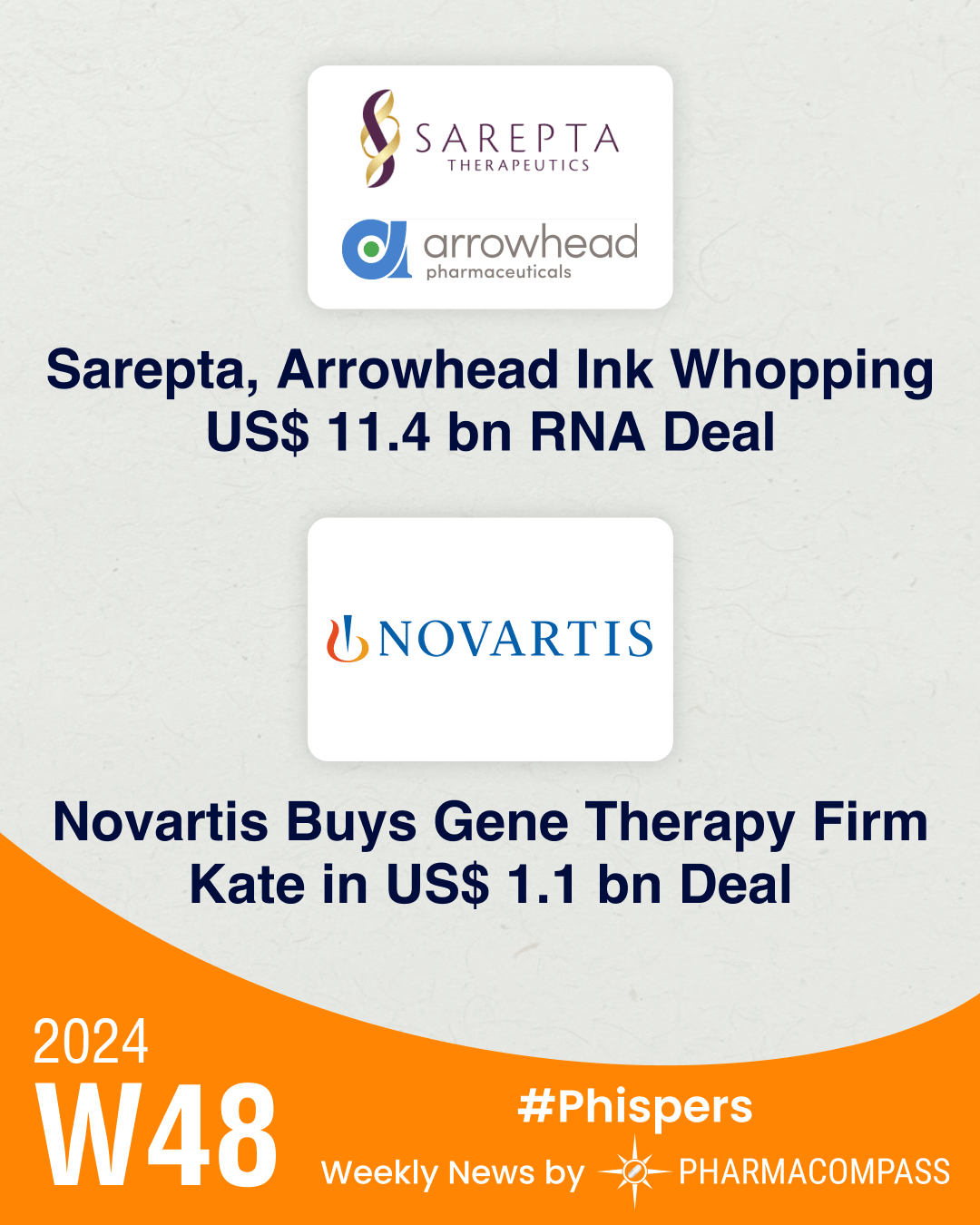
Sarepta inks US$ 11 bn RNA deal with Arrowhead; Roche expands CAR-T arsenal; Novartis buys Kate for US$ 1 bn
The week saw three large deals signed
in promising fields. First, Sarepta Therapeutics signed a US$ 11.4 billion deal
with Ar...
Impressions : 1645
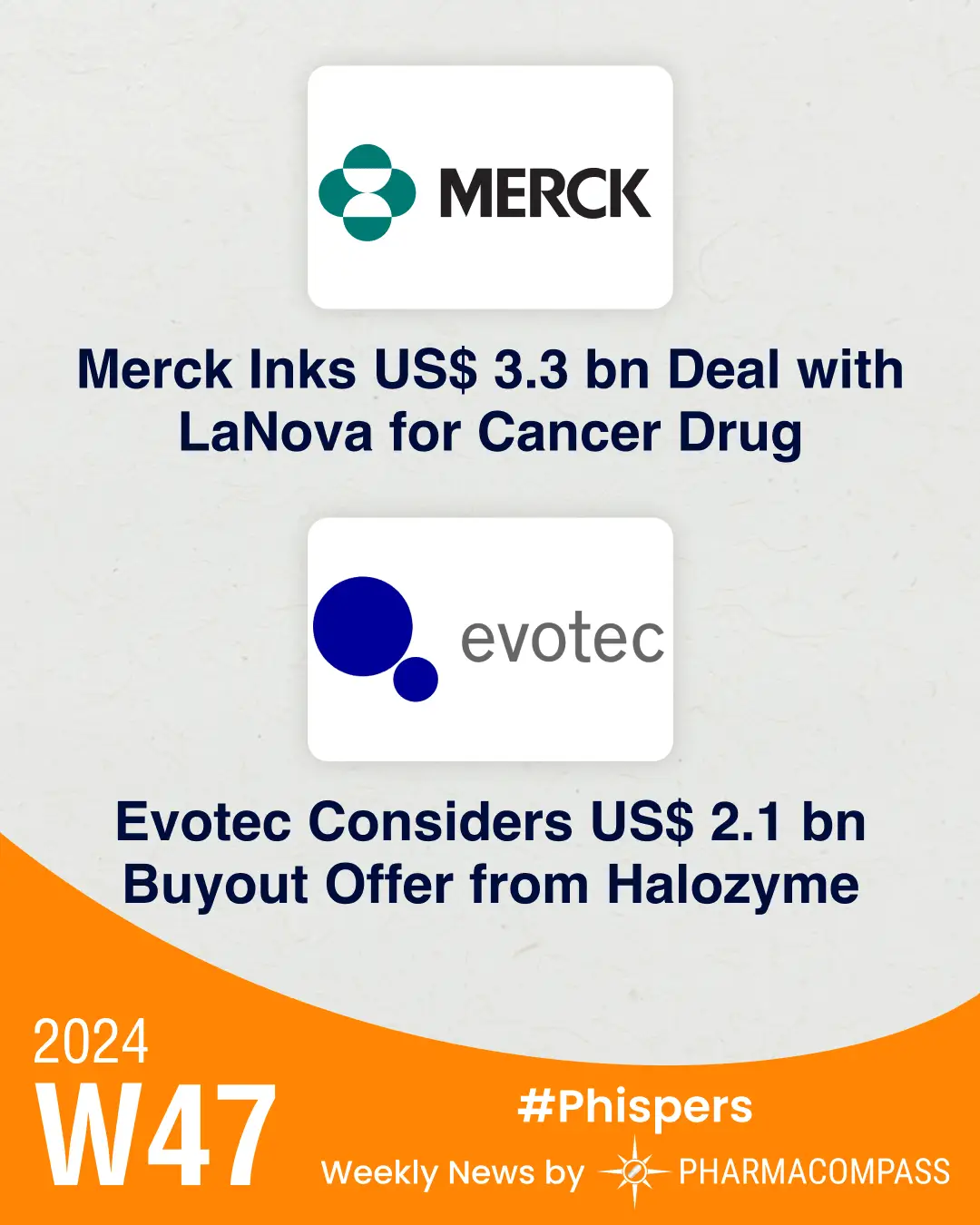
Merck inks US$ 3.3 bn cancer deal with LaNova; vaccine makers’ stocks tumble after Trump picks RFK Jr to head HHS
This week, Merck
struck a strategic US$ 3.3 billion deal with LaNova Medicines for a promising
cancer drug, and also demonstr...
Impressions : 1120
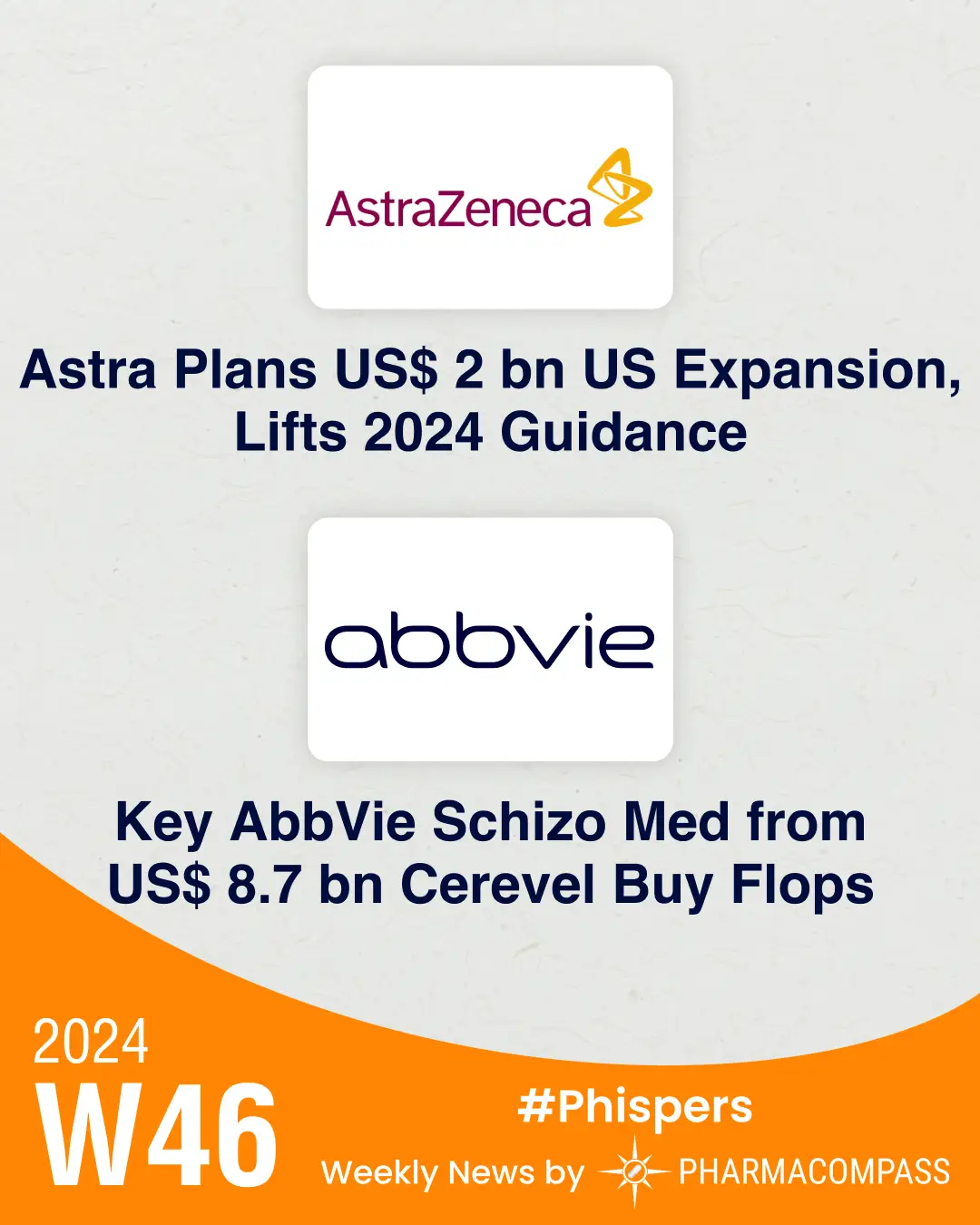
Astra invests US$ 2 bn in US R&D; key AbbVie asset from US$ 8.7 bn Cerevel buy flunks phase 2 trials
This week’s Phispers is packed with news about deals. First, AstraZeneca announced a US$ 2 billion investment in the...
Impressions : 790
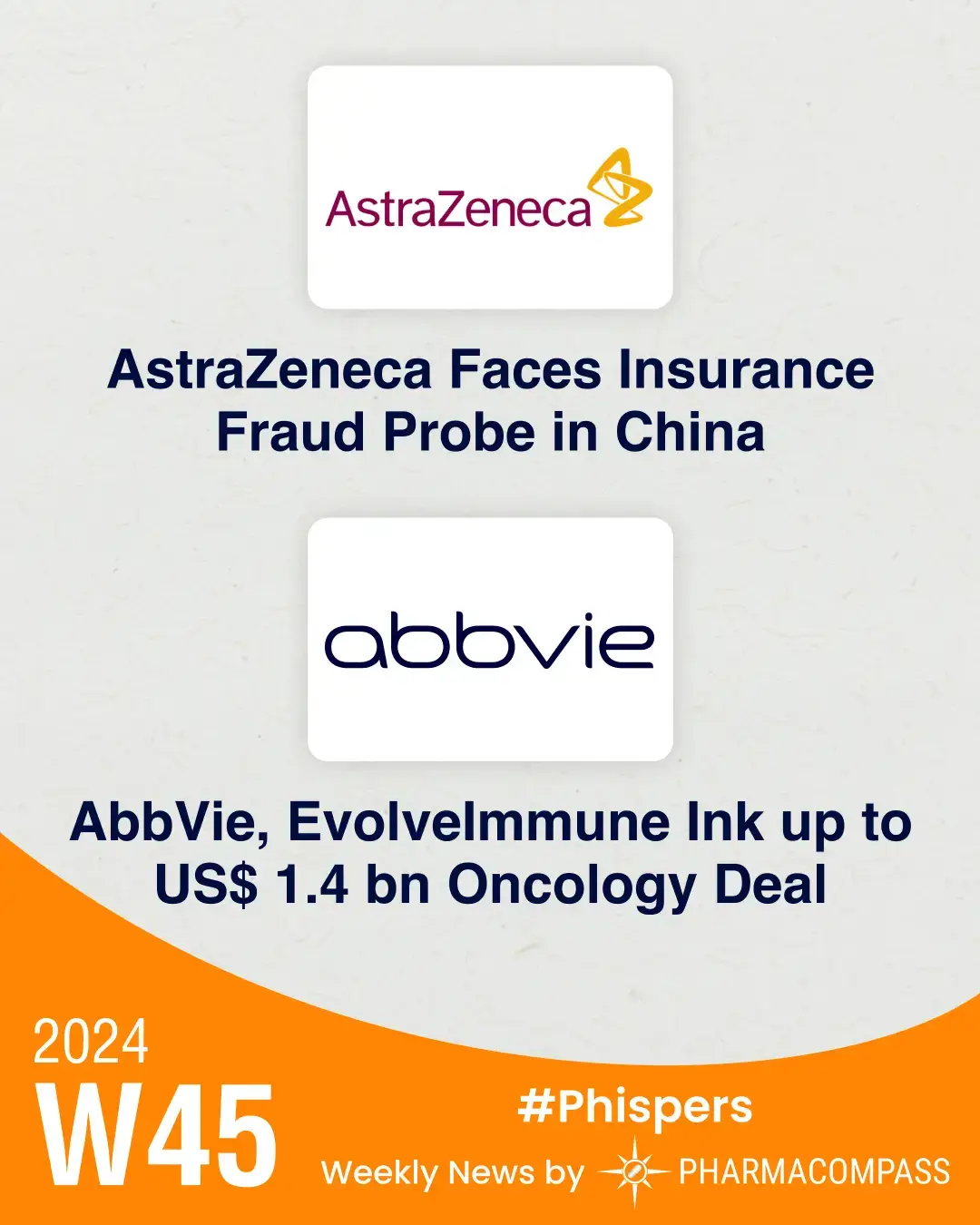
Astra faces probe in China; AbbVie, EvolveImmune ink potential US$ 1.4 bn deal; EC levies US$ 503 mn fine on Teva
In this week’s Phispers, AstraZeneca faces a major crisis in China as its president Leon Wang is under investigation in w...
Impressions : 943
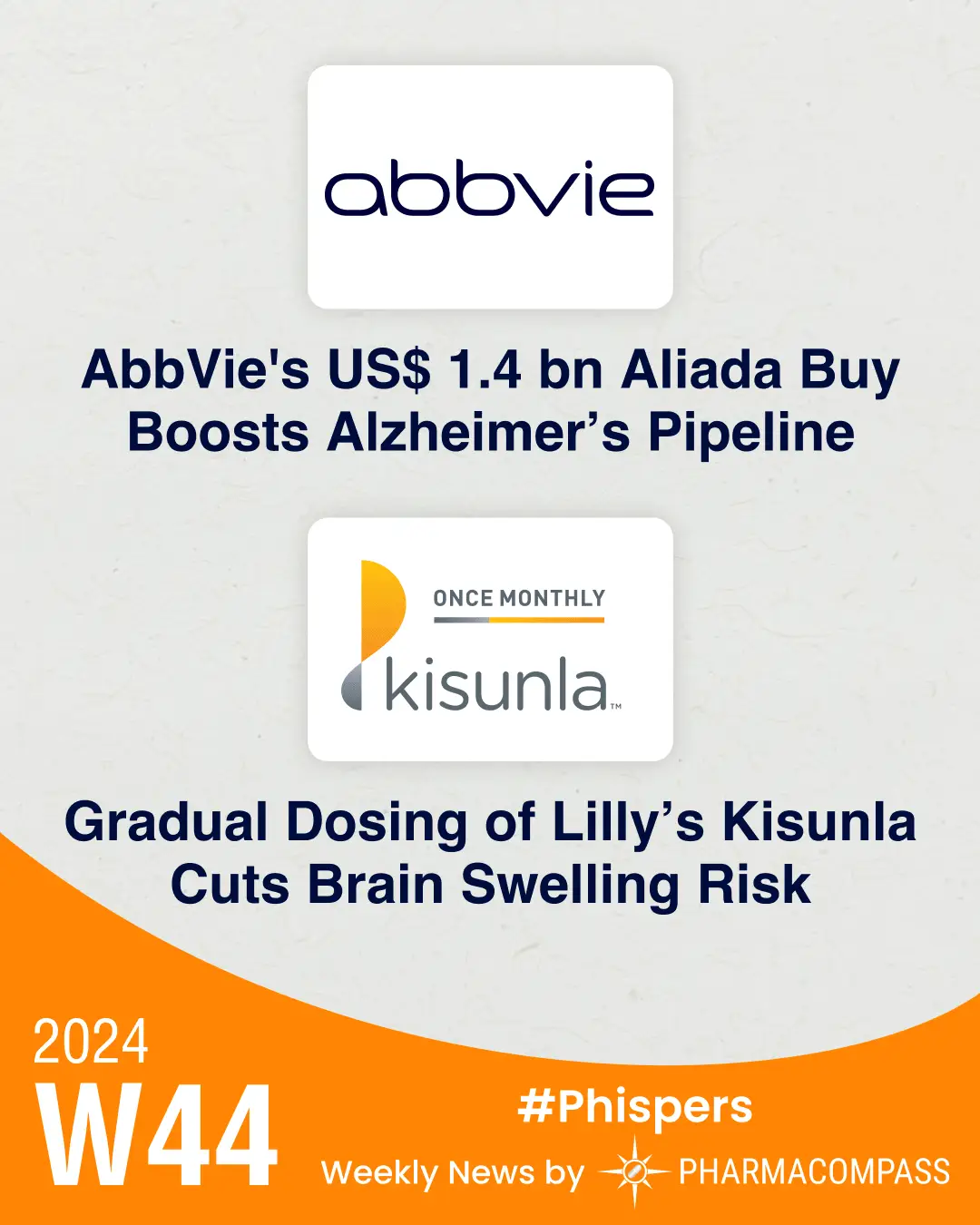
AbbVie strengthens Alzheimer’s pipeline with US$ 1.4 bn Aliada buyout; Roche expands gene therapy pact with Dyno
This week’s Phispers is packed with latest developments in the field of Alzheimer’s disease, owing to a conference ...
Impressions : 841
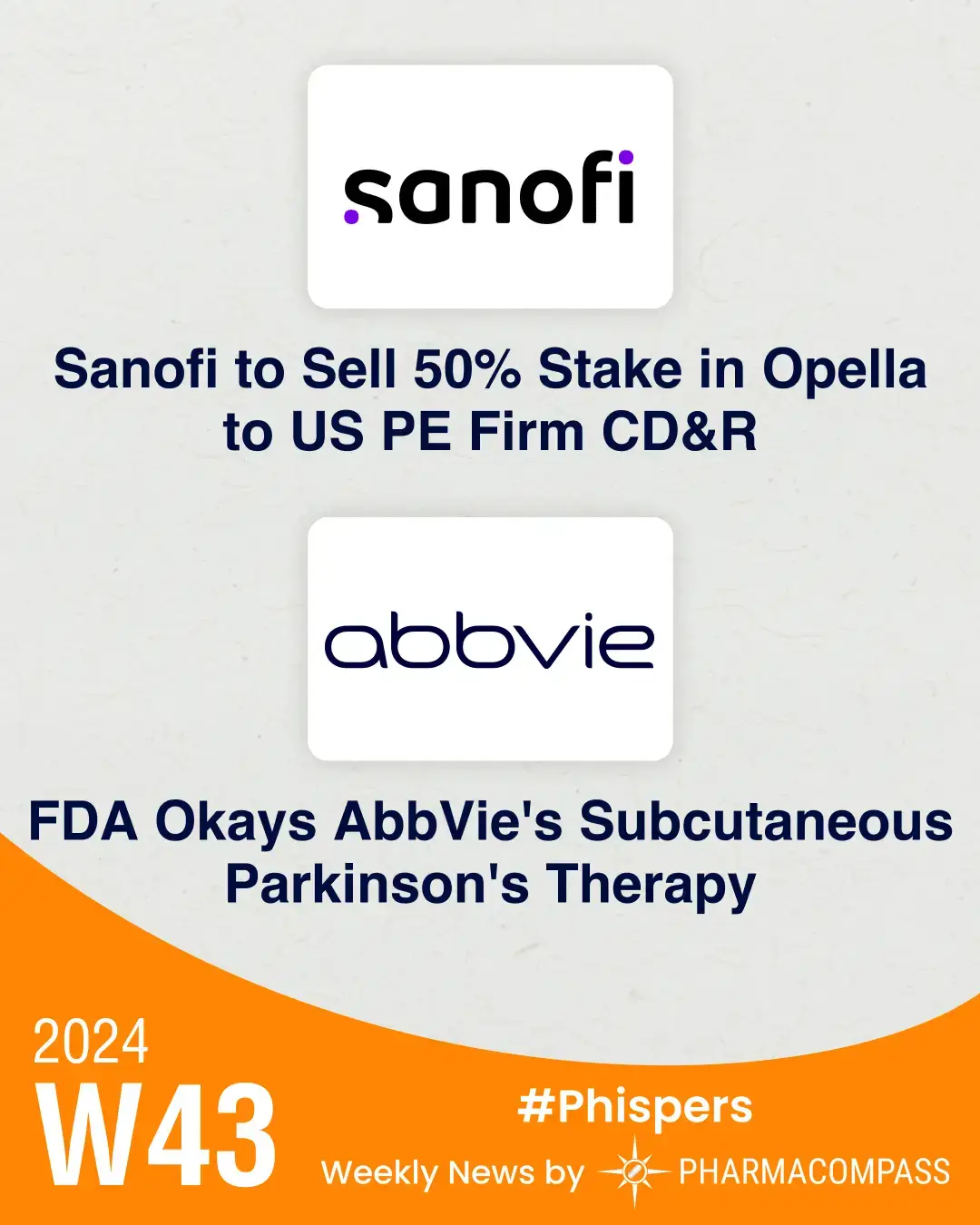
Sanofi to sell 50% stake in Opella to CD&R, to retain French workforce; AbbVie bags FDA nod for Parkinson’s therapy Vyalev
In this week’s Phispers, Sanofi has entered into exclusive talks with US private equity firm CD&R to sell a controlling 5...
Impressions : 946
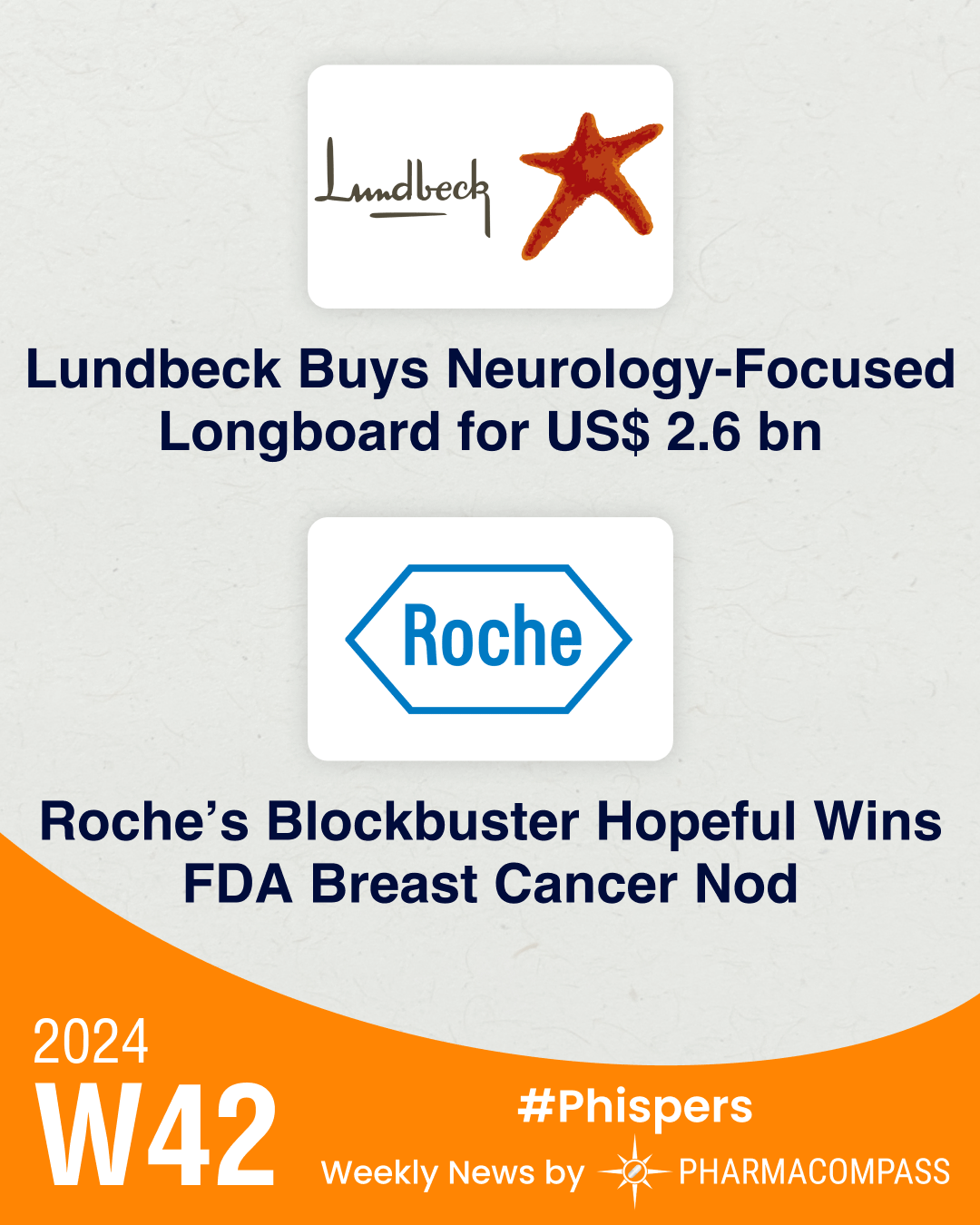
Lundbeck acquires Longboard for US$ 2.6 billion; Roche’s Itovebi bags FDA nod for breast cancer
This week’s is a double dose Phispers, as we return from a one-week break due to CPhI Worldwide. The fortnight saw severa...
Impressions : 1044
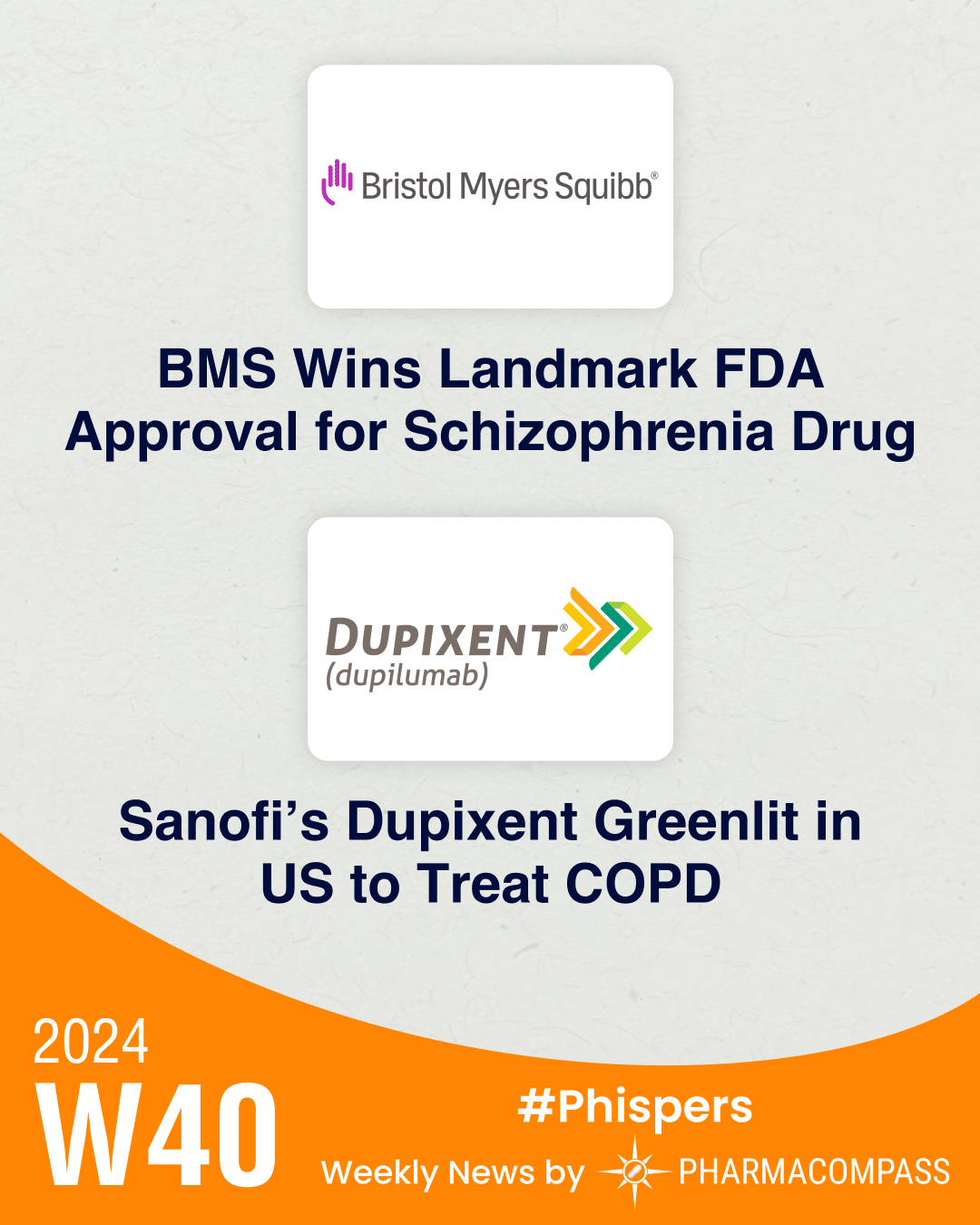
BMS med wins landmark FDA nod for schizophrenia; Sanofi’s Dupixent approved to treat COPD
In this week’s Phispers, the US Food and Drug Administration (FDA) approved Bristol Myers Squibb’s groundbreaking s...
Impressions : 993
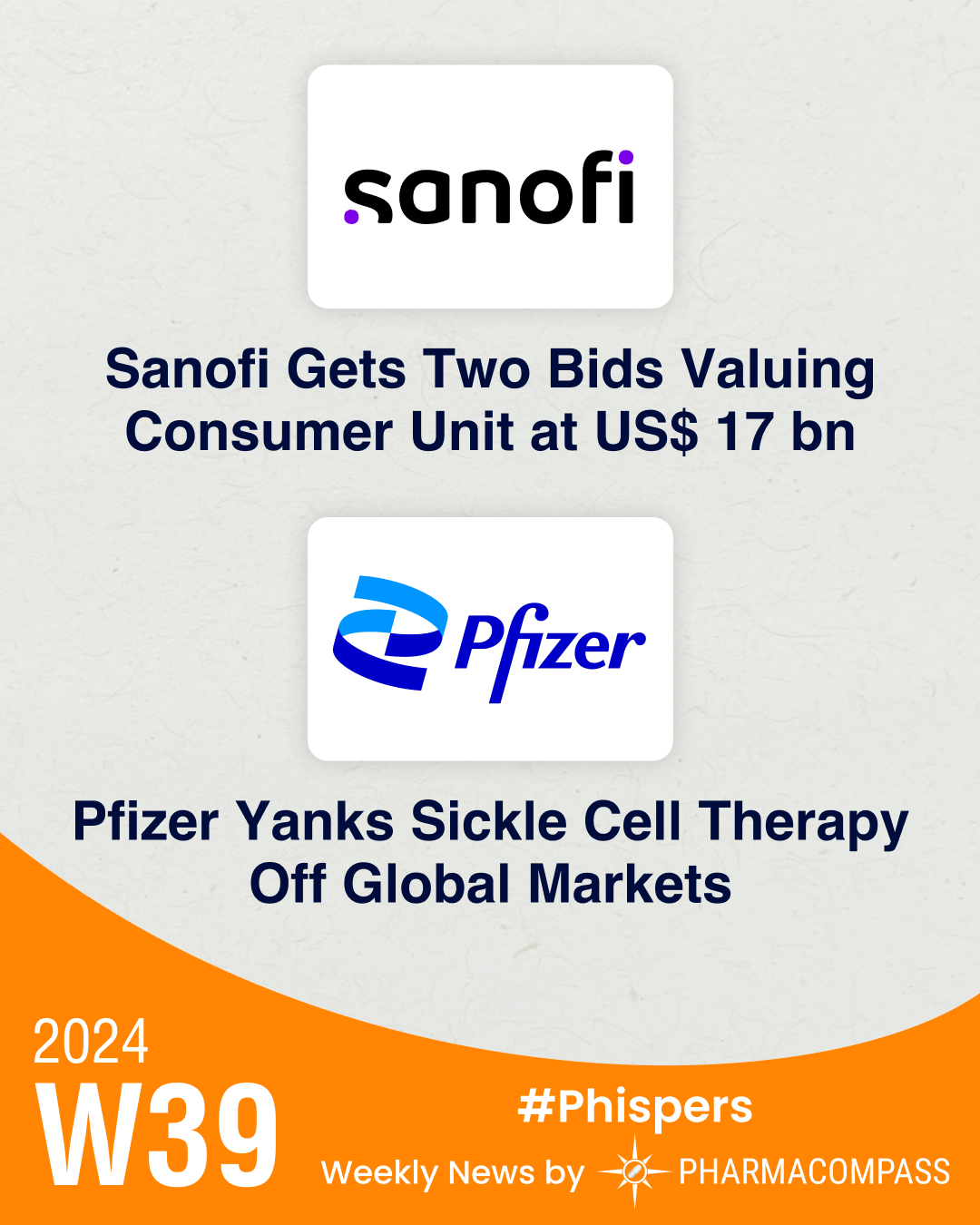
Sanofi gets two bids valuing its consumer unit at US$ 17 bn; Pfizer pulls SCD drug from market
In news this week, Sanofi is considering the sale of its consumer
health unit and has received binding bids valuing the divisi...
Impressions : 1234


 Market Place
Market Place Sourcing Support
Sourcing Support